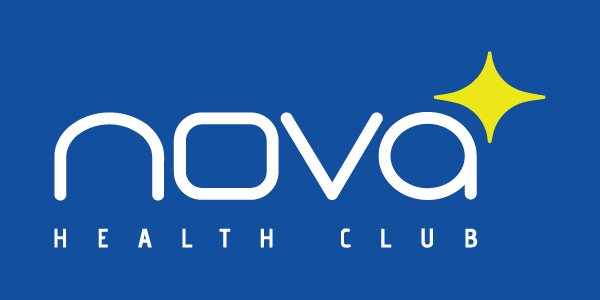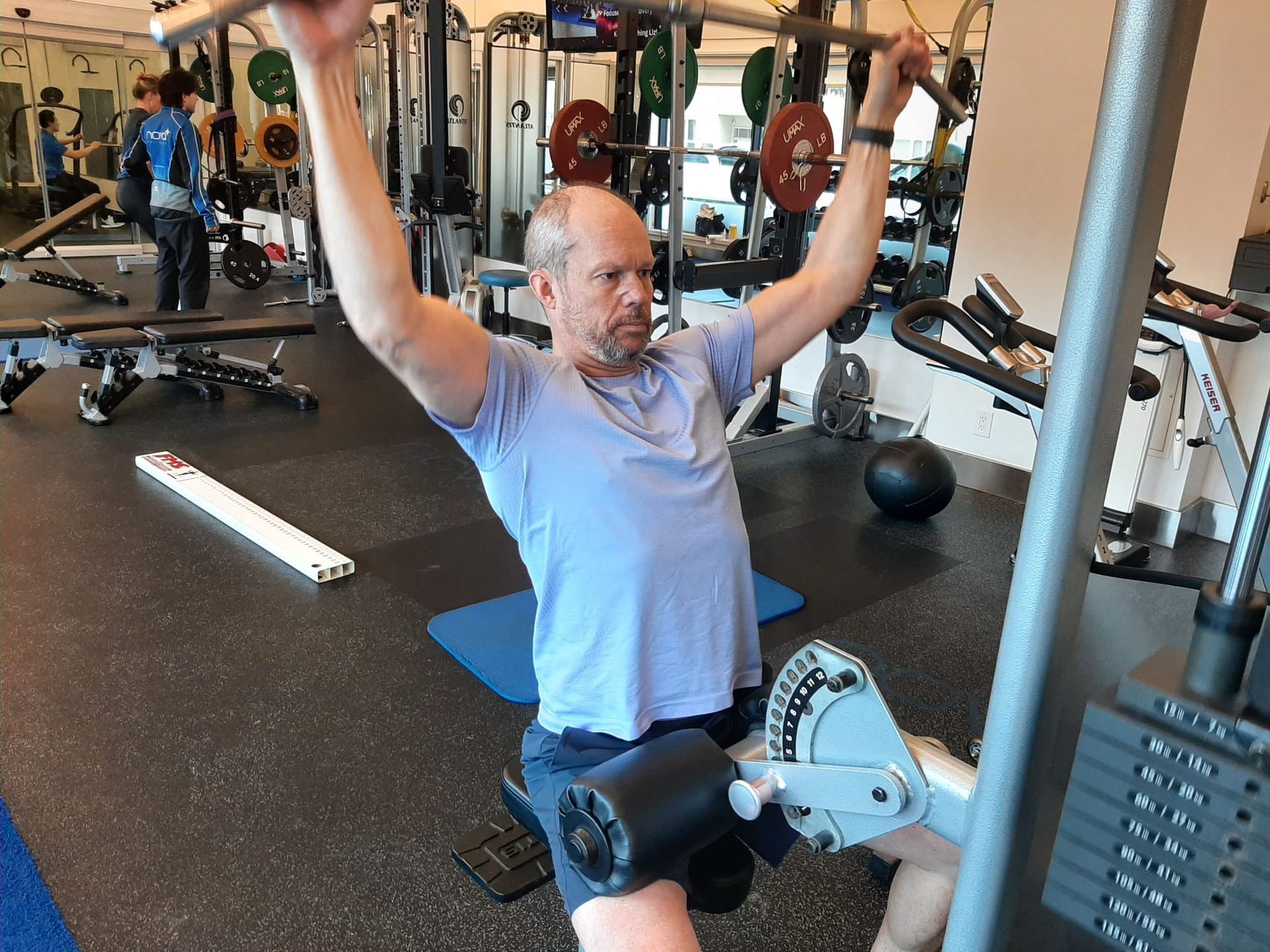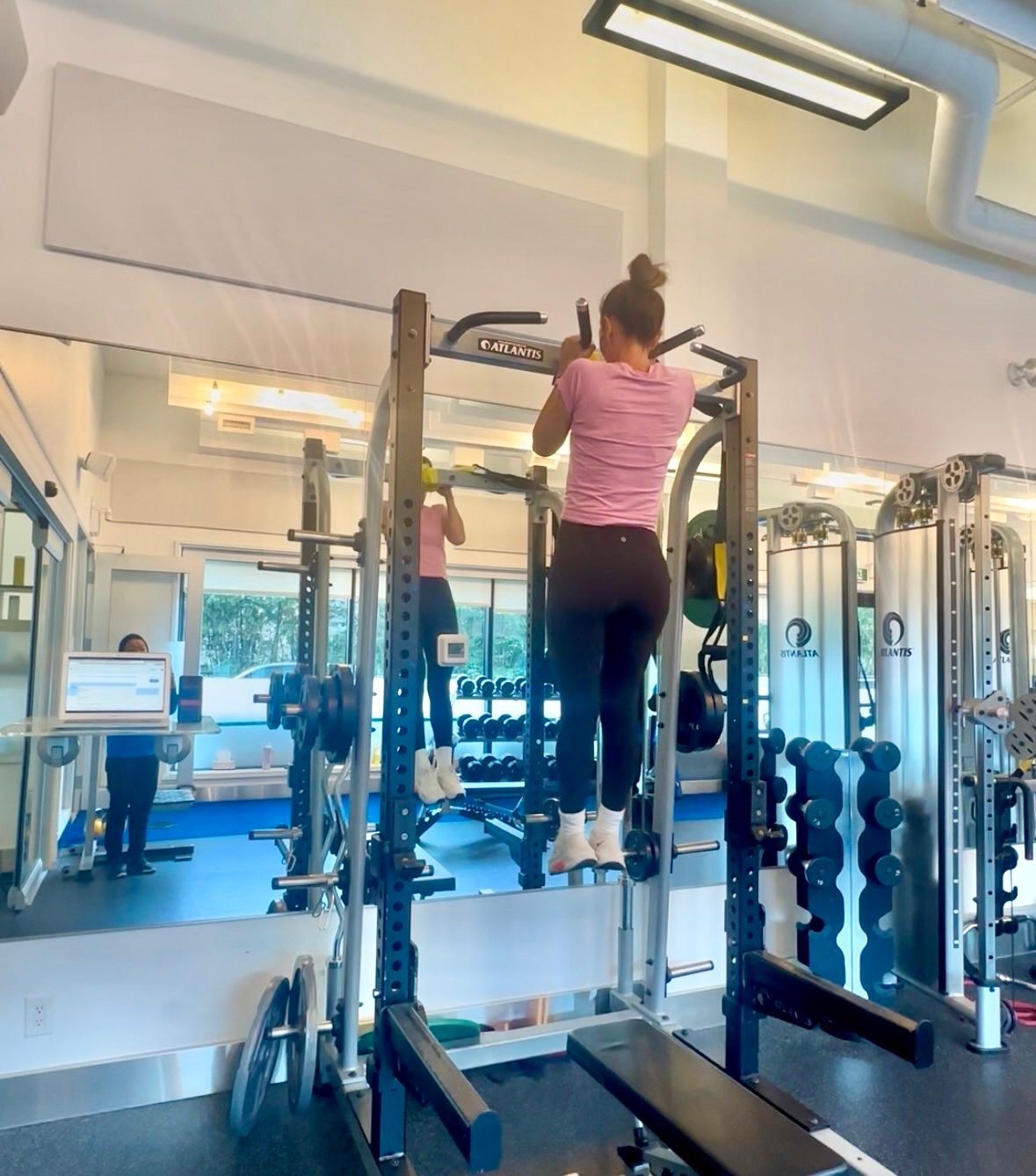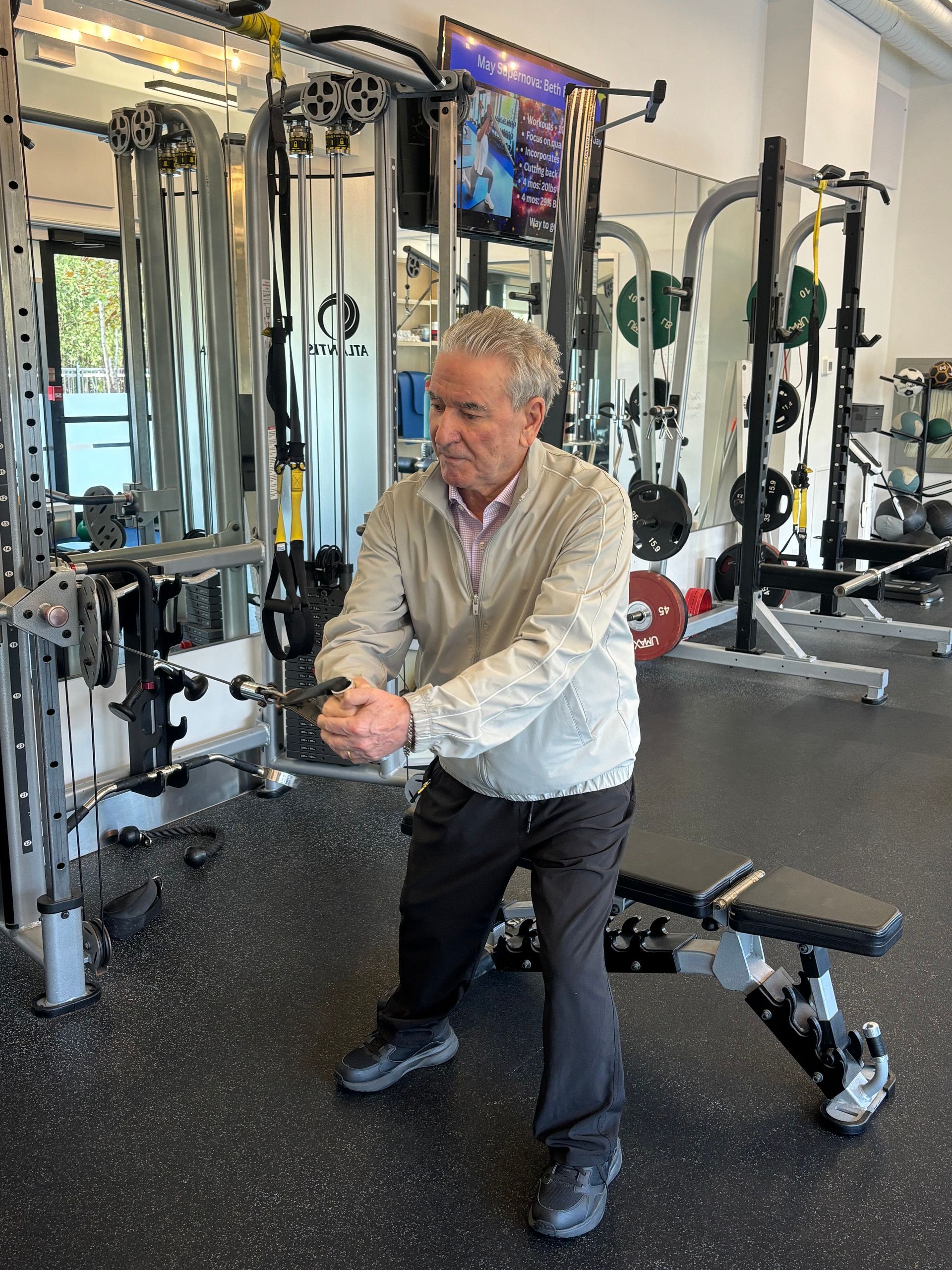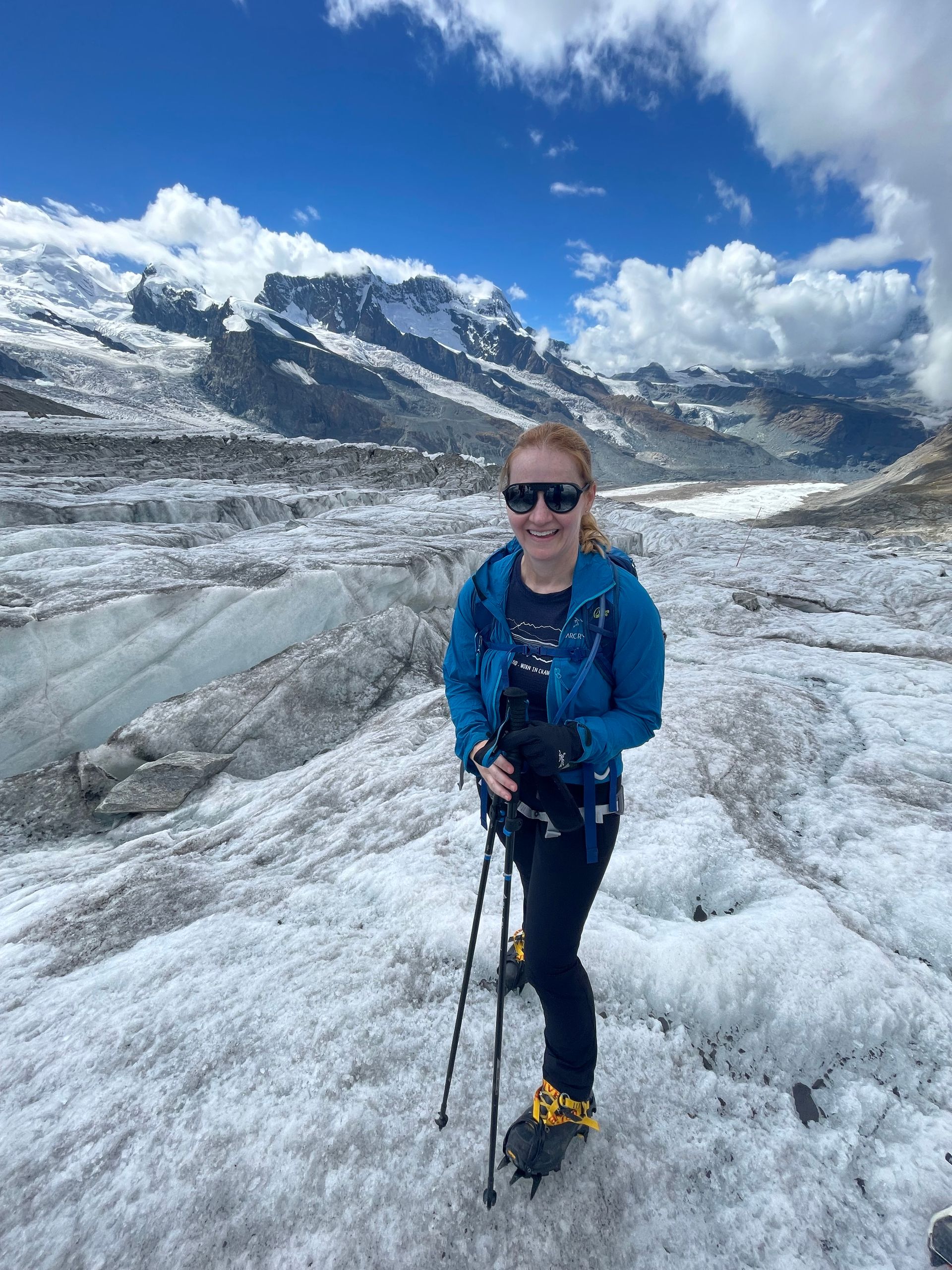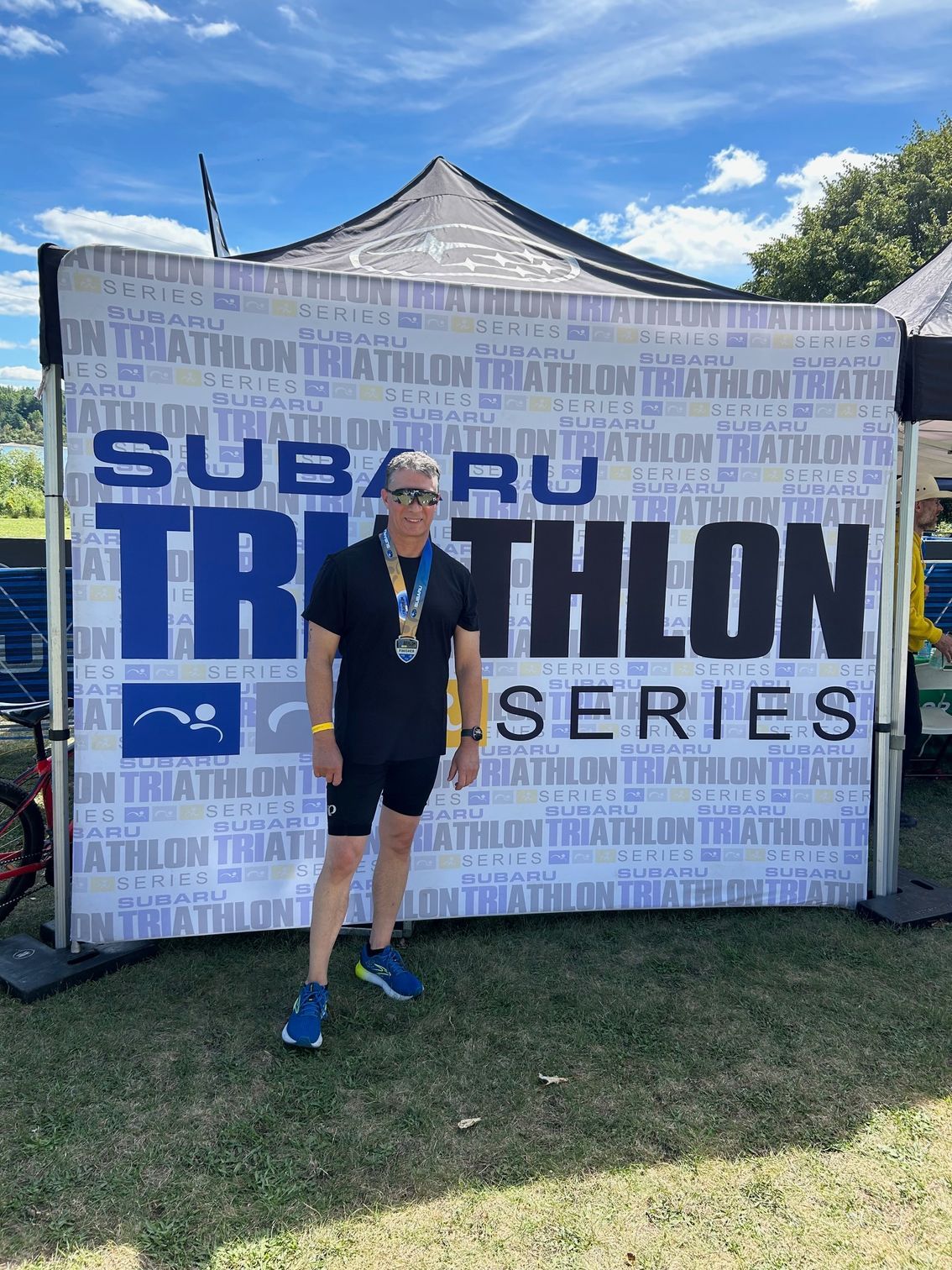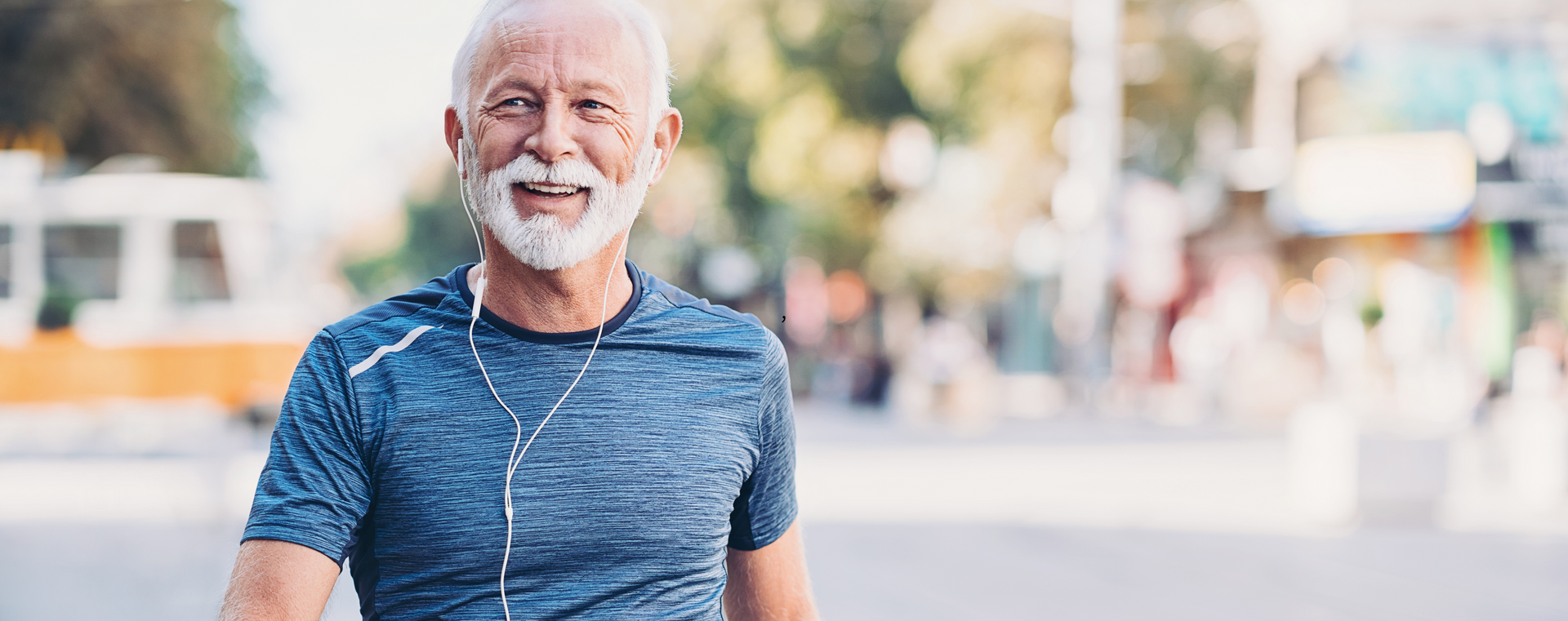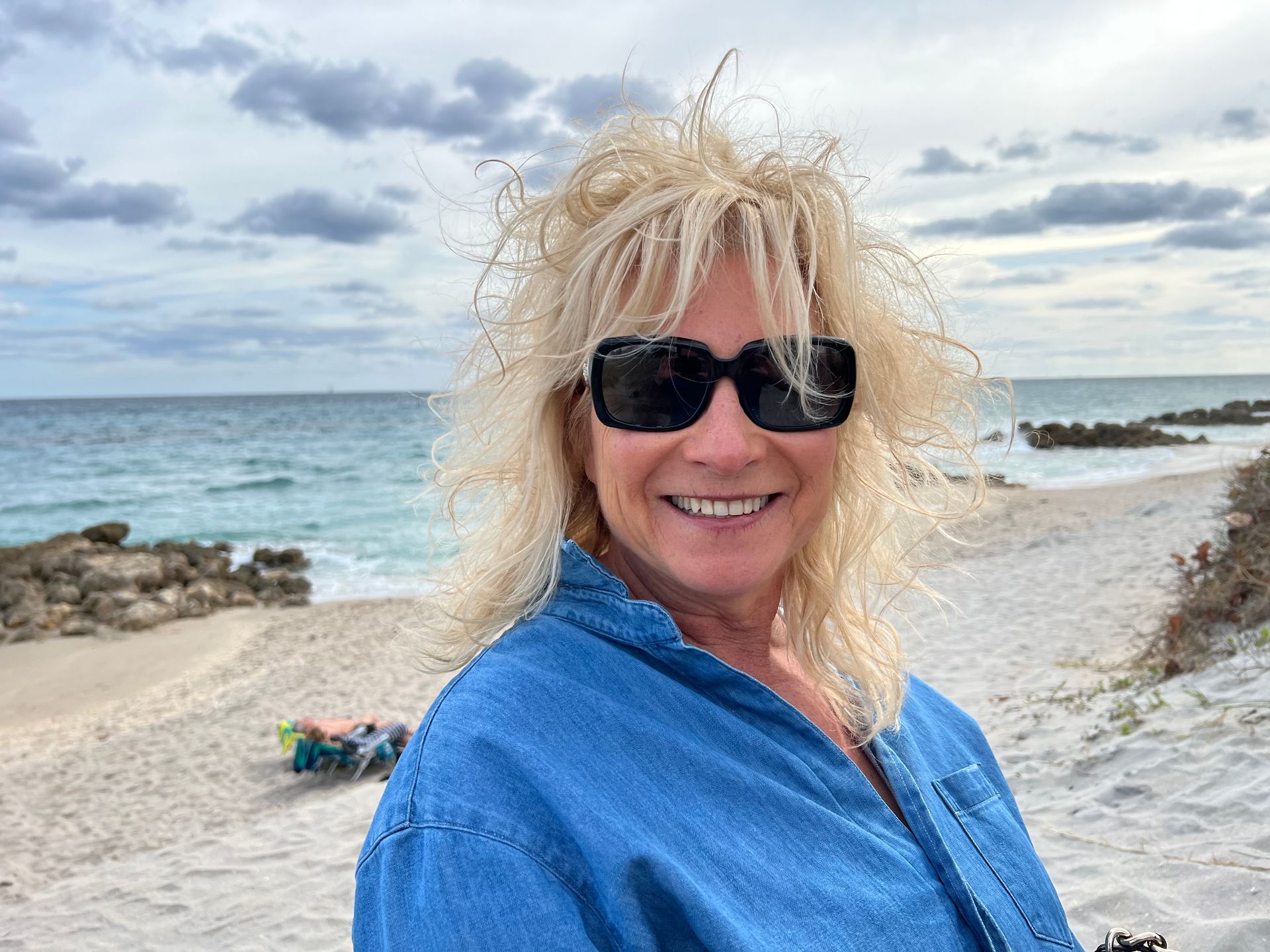Chris Robertson: From Decathlete To Obstacle Course Racing
Joshua Allen / Chris Robertson • June 8, 2020
Train Smarter, Not Harder
Chris Robertson has been a Nova Health Club coach for three years. When he joined with us he was a competitive decathlete who was early into his osteopathic studies. Chris has grown over the years as a professional and an athlete and we are proud to have witnessed him successfully complete his decathlon career during this time.
LET US HELP YOU ON YOUR OWN PERSONAL JOURNEY. BOOK YOUR FREE HEALTH CONSULTATION NOW
Chris being a natural high performance athlete has made the transition into a new sport - obstacle course racing - specifically the Spartan Race series. In this interview we hear from Chris how he has managed to work with Nova, study for osteopathy and transition from an explosive sport like the pentathlon to endurance racing in the Spartan series.
Q: What is your background and tell us how you got into sport and human performance?
After graduating high school in Moncton, NB and competing at an elite level in both hockey and track and field, I pursued Kinesiology at Western University in London Ontario. I graduated as an Academic All Canadian and was captain of the Varsity Track and Field team in my final year. A year after leaving Western I decided to pursue Osteopathic Manual Therapy at the Canadian Academy of Osteopathy in Hamilton. This decision was made after working for a year in the personal training industry and recognizing the health concerns many members were experiencing that were only being prolonged by the care they were currently receiving. The philosophy of osteopathy immediately resonated with me and after four years in the program I can say with certainty it is the best educational decision I have ever made. The knowledge gained through my program guided my growth as a personal training coach, helping create programs very specific to the anatomical and physiological needs of every member I encountered.
Q: You have a history competing as a professional in Decathlon. Tell us about the years in this including some of the highlights and why you decided to hang up your jersey from this sport?
The decathlon was my outlet for expressing physical and technical skill across a broad array of sports. While I was agile, explosive, and had the tall body for most sports, I never quite found a specialty to excel at. The decathlon was my chance to use those skills in ten different events averaging into one result. In 2011 I realized my potential in the sport when I finished third in the country in the 19 and under category. My physical strengths really began to evolve in 2017 however at this time I was training on my own in Hamilton while studying for Osteopathy. It wasn’t until I sought guidance and followed a structured program for jumping and sprinting that I had a breakthrough, winning the Canadian National Championships in 2018. With graduation approaching and a professional career I knew retirement was something I needed to consider. However in the winter of 2018 I suffered from extremely painful back pain for months on end. It wasn’t until after months of my own osteopathic treatment and careful training was I able to return and finish 2nd in the country. Knowing the demand of the sport was becoming too taxing on my body to continue, I decided to leave the sport of Track and Field to focus on school and a new activity with less impact.
Q: You have recently changed focus from Pentathlon to Obstacle Racing. The requirements for a human to perform at their best in Pentathlon is very different from Obstacle course Racing. The Pentathlon is very much maximum power, sprinting short distances while obstacle racing requires much more endurance. How has the transition from an explosive type sport to an endurance sport been? What challenges have you found making this transition?
In the decathlon my specialties were related to technical skill and explosiveness. Upper body strength and endurance were my weaknesses. As an individual who always strives for a challenge I decided to pursue Spartan Races, endurance events loaded with obstacles requiring upper body strength. I learned quickly casual trail runs and chin ups weren’t going to cut it as the races feature slippery hand holds for climbing and hills like you wouldn’t believe. In the fall of 2019 a 15km race in New Jersey took me two and a half hours. This was completely due to the sheer volume of elevation (3700 feet). Since then I have become an avid rock climber and have been challenging myself on trail runs. I will finish this month with over 200km of running and over 6km (20000 feet) of vertical elevation. When I began training I constantly used my height and weight (6’3, 200lbs) as an excuse for my sluggishness, but I am now using it as a motivation in testament to my sport versatility.
Q: What are you currently training for and what are your future athletic goals?
I am currently training for a 50km virtual Spartan Race (Chris completed this on May 31st). This will be more than double the longest distance I have ever run but I am confident in the preparation I have been doing over the past ten weeks since the start of COVID lockdown. For the month of June and possibly July I am going to transition into 5km training and focus more on shorter endurance. This will give my body a break from the heavy mileage and will be more suitable for the hot weather. My current goals are to get my 5km under 20 minutes and to run the 1500m faster than I ever did in ten years doing the decathlon (under 4:44).
Q: You are also studying your final year of Osteopathy. How have you been able to balance this, with high level training and holding down a job with Nova Health Club?
Nova Health Club has been the enabling force behind being able to train competitively, study for osteopathy, and being able to work. By agreeing to work evenings and Saturdays at Nova, I opened up weekdays for class weeks and to drive to York University where I had access to all training facilities needed for the Decathlon. The situation was well suited to a decathlete as I needed to carefully juggle three large aspects of my life while maintaining a personal life as well with my fiancée, Victoria, and friends. Since retiring from the decathlon I have had the opportunity to slowly transition into endurance sports and rock climbing while focusing heavily on my final year of studies at the Canadian Academy of Osteopathy.
Q: Covid19 has presented many challenges for us, how has this affected your training as an athlete and your studies in osteopathy? What opportunities have you found over the last few months that you are taking advantage of to become better and to reach your goals?
Lockdown has presented challenges and opportunities alike. The final six months of my program required before graduation are focused on hands-on clinical experience. This is clearly not an option. To stay sharp with my studies I have volunteered many hours as a tutor for the students currently in their classroom semester and am working away at two large final reports required before graduating. The biggest opportunity given to me is the chance to improve my endurance skills. My monthly mileage has increased exponentially, having run over 400km and almost having climbed the vertical equivalent to Mount Everest (8800m) on those runs. With personal training I have found the transition to virtual training a natural process. I believe the world was more than ready for online personal training but didn’t even know it. The members who have continued to train with us online have recognized that while the gym setting is the most ideal for specialized training needs, the simplicity of online video sharing matched with the vast training knowledge and experience of coaches at Nova has translated into quality sessions from the comfort of their homes.
Q: What advice would you share for those wanting to excel at sport or take their performance to the highest level?
Personal fitness is not rocket science, it is a function of effort and time like most things in life. In the time it takes to become mediocre at online video games you could completely overhaul your mental and physical abilities. While personal fitness is a function of time and effort, elite performance is a function of both time and effort with the inclusion of specificity. I didn’t become a Canadian champion by following my training regime from the past eight years, I maintained technical training while swapping my strength program for a specialized training program in the gym geared towards sprinting and jumping explosiveness. With only small changes to time and effort but a specialized approach to my specific strengths and weaknesses I raised my game to the next level. The lesson here is nothing we haven’t heard before but is one we as trainers can’t echo enough: train smarter, not harder.
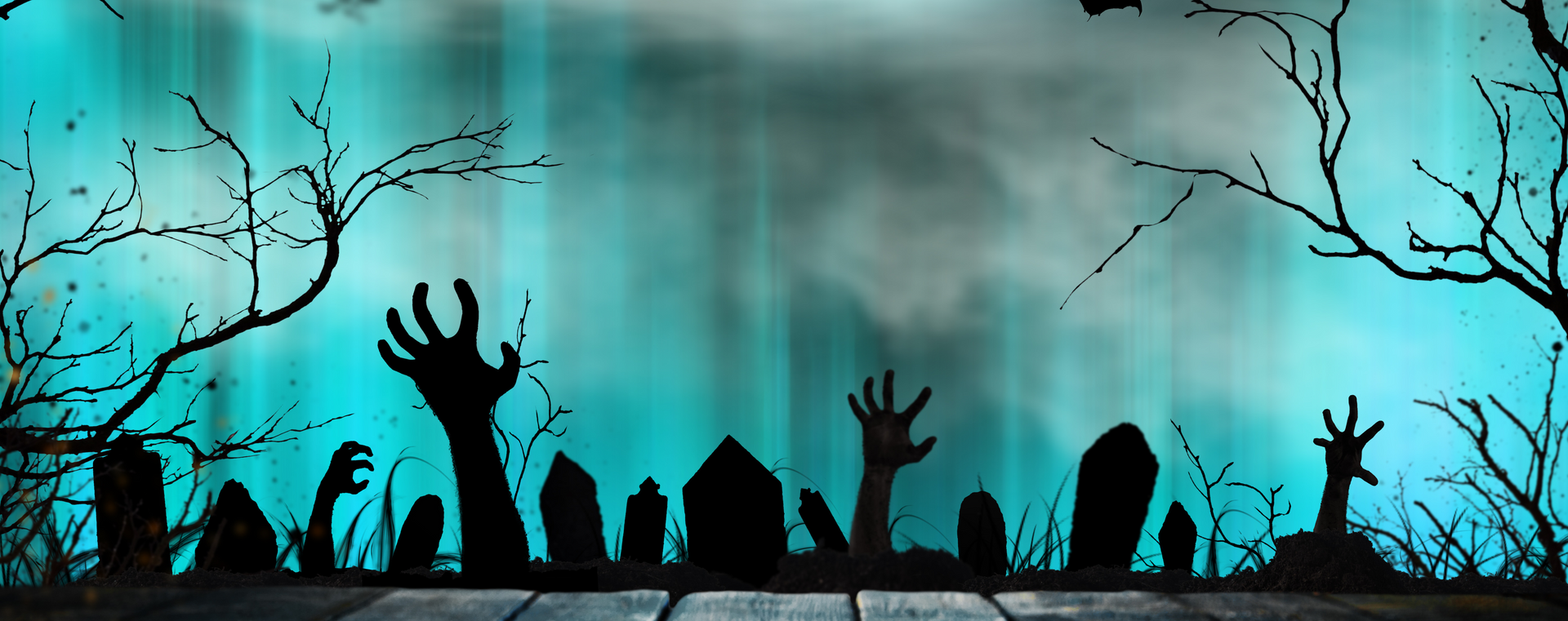
It's that time of year again where Halloween candy is everywhere - especially if you have children who are in the trick or treating age. We all know that candy is unhealthy and we are aware of sugar's detrimental effects on our health, from weight gain to cavities... But do you know the risks in eating Halloween candy that go beyond weight gain and cavities? While sugar is certainly a concern, other ingredients in many popular candies can chip away at your health and well-being. The Deceptive Allure of Halloween Treats While eating Halloween candy can be a nostalgic pleasure, the ingredients list tells a different story. I personally love Halloween but about 7 years ago I went clean and gave up Halloween candy for good because I learned it is much more than a sugar problem… Beyond sugar, are ingredients like hydrogenated oils, high-fructose corn syrup, artificial colors, titanium dioxide and common allergens like wheat, corn, dairy, and soy. These ingredients can wreak havoc on our bodies, leading to a host of negative health effects that most consumers overlook. Beware: 5 Ingredients in Halloween Candy With Negative Health Effects 1. Hydrogenated Oils: Hidden Fats Hydrogenated oils transform liquid oils into solid fats and enhance texture and shelf life. These trans fats are notorious for raising bad cholesterol levels, increasing the risk of heart disease and causing inflammation in the body. Look out for the word ‘Hydrogenated’ in candies like Skittles or Starburst 2. High-Fructose Corn Syrup (HFCS): A Sweet Sabotage HFCS is another frequent offender. It’s a cheap, sweet alternative to sugar that can lead to rapid spikes in blood sugar levels and cravings. Overconsumption of HFCS has been linked to obesity, insulin resistance and fatty liver disease. Many people consume HFCS without even realizing it. Candies like Oh Henry and other chocolate bars have HFCS. 3. Artificial Colors: A Rainbow of Risks The colors that make Halloween candy so visually appealing are often the result of artificial colorings like Red 40, Yellow 5 (Tartrazine), Yellow 6 (Sunset Yellow) and Blue 1. Studies have shown links between these artificial colors and hyperactivity in children, as well as allergic reactions as well. Here are some of your Halloween favorites with these colors: Skittles , Maynards , Sour Patch Kids , Jolly Rancher , Twizzlers , Starburst and M&M’s 4. Titanium Dioxide: The White Truth Titanium dioxide is used in many candies to enhance their whiteness and opacity. It is a detergent that damages your gut and decreases your gut microbiome. Any candy that has a white center, like Skittles is known to use this ingredient. 5. Allergens: Hidden Dangers for Sensitive Individuals Finally, we can’t forget the processed allergens like wheat, corn, dairy and soy in many candies like Mars or Snickers . Those who are highly allergic know to stay away from foods with these ingredients but what about the low grade allergic response that most people ignore? Hives, scratchy through, congestions, asthma, sneezing, itchy eyes and mild GI discomfort are all effects of these allergens. The Scary Reality Halloween is a fun time but we’ve really thrown in the towel when it comes to our health based on the things we are accepting as ok. We've created a society where we buy the cheapest, lowest quality candies to give to our children (and ourselves). Most, if not all of the mainstream candy companies produce products that are high in chemicals to preserve shelf life, to entice our eyeballs and to stimulate our brain to want more the moment it hits our palette. We've also bought into the idea that it's ok because it is just once a year... but the reality is that this food is everywhere all the time. If it was just one day on Oct 31 then sure - that could be ok, but most children are coming home with more than 10lbs of candy that they consume over the next 30 days. It’s no wonder why so many of us suffer with health issues including our children. Modern children are being diagnosed with more health problems than previous generations. Things like childhood depression/anxiety, food allergies, ADHD, autism, eczema and obesity are just some of the things we are seeing more of. Stay Vigilant and Read Labels Can we blame our poor health all on Halloween candy? Certainly not - it's more than just candy in October however the amount of candy with the above ingredients being consumed during Halloween and through the year is definitely a contributor. So when it comes to candy, watch out for the sugar but it’s time to wake up to the other ingredients that are damaging us. The best thing to do is read the labels and be aware of what you choose to consume. And hopefully in time we choose to buy 'treats' that are not filled with chemicals. Next year, choose to buy healthier options versus the mainstream candy we grew up with. Healthier Alternatives Here are some options to consider instead of the mainstream low quality garbage that we've been accustomed too: Chocolate Bars Unreal Coconut Bars : This company is on point with way healthier ingredients than the mainstream. They carry an assortment of candies beyond just the coconut bar (which is one of my faves). Granola Bars Made Good : You've probably seen this brand around in stores - specializing in gluten free healthier granola bars. Cookies Simple Mills : Making cookies and baked goods gluten free and with sweeteners that have a lower glycemic index than regular sugar (less of a blood sugar spike) Candies Smart Sweets : Candies without artificial colors and high sugar Lollipops & Jelly Beans YumEarth : W ithout artificial colors Water Enhancer (Vitamin C) Emergen-C : Something different from usual candy - Vitamin C drink crystals that are a much healthier option to candy and kids love em. There are more brands out there but you have to be on your toes when buying. Pay attention to brands, scrutinize the ingredient list and pay the extra money. Every dollar you spend is a vote - the more we vote for the better products for our health, the lower the cost will end up being in the future.
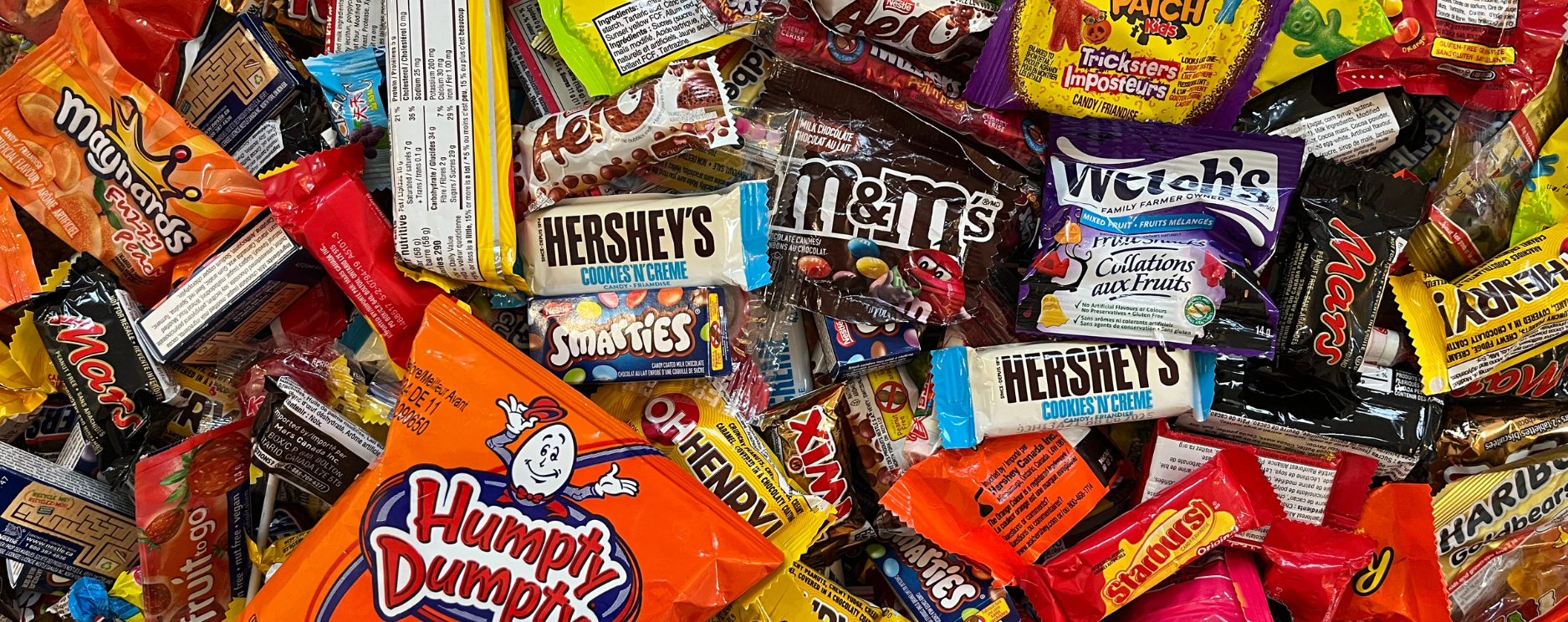
Having trouble controlling the intake of Halloween candy? Unless you are a disciplined ninja or equipped with helpful restraint tactics, you end up eating too much of this low quality, highly processed junk food. If you are someone with a sweet tooth then you are in luck! Here are 5 tactics that will help you avoid eating too much (if any) candy this Halloween. 1)Don’t Skip Meals or Snacks Skipping meals and snacks creates stress on your body and a stressed body is more likely to have sugar cravings. Self control becomes extremely difficult when you're underfed. If candy appears it is much harder to resist because your body is lacking energy, vitamins and minerals. If you eat a solid meal along with healthy snacks throughout the day (ie: protein shake, apple and almonds) I guarantee that it will be hard to eat candy. 2)Eat Enough Protein On the heels of not skipping meals, make sure each meal has enough protein. Meals that are low in protein mean that they are higher in carbs. As a result you will deal with blood sugar dips and greater hunger, weakening your resistance to candy. How much protein? This differs between people but generally you aim to have at least 0.8 grams of protein per pound of ideal body weight. The more active you are, the more protein you will require. 3)Stay Hydrated Being dehydrated will make you feel hungry even when you are not actually hungry. As a result you are more likely to have the urge to grab a sweet from the candy bowl. The simple solution is to just drink enough water throughout the day. How much water? Click here to download your All About Water PDF. 4)Say It Out Loud Often we eat candy without thinking. It is not uncommon to have 5 or 6 candies before you become mindful of what you are doing. By then it’s too late. This may sound strange but as you are picking up the candy - say out loud “I am going to eat this candy” (even if no one is around). This helps you become more aware of your actions, encourages mindfulness, and engages your logical mind. 5)Educate Yourself The scary truth is that mainstream Halloween candy is some of the worst food you can put into your body. Most of these candies contain highly inflammatory ingredients, allergens, and toxins known to disrupt everything from the gut microbiome to DNA, potentially contributing to ADHD symptoms and triggering allergies… And that’s without commenting on the effects of sugar that most of us already are aware of. Eating certain candies can be just as bad as smoking a cigarette! Give these tactics a try - they should help you to say no to Halloween junk food this year. If you are still having trouble, you can attempt a ‘clean sweep’ by throwing it all into the garbage… If you still have a sweet craving, have some dark chocolate or walk to the best bakery in town and buy yourself a $10 chocolate croissant :) Happy (Healthy) Halloween!
